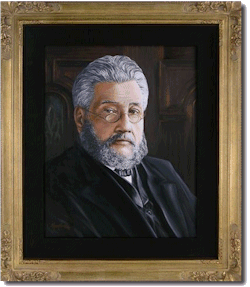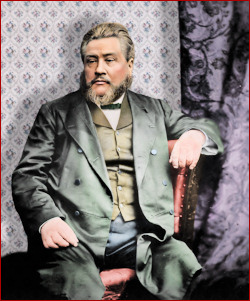
"For freedom Christ has set us free; stand firm therefore, and do not submit again to a yoke of slavery" (Galatians 5:1)
 hat one verse captures the essence of Paul's whole appeal to the Galatians. It could be called the key verse of the book of Galatians. It distills Paul's whole answer to the Judaizers in a single statement.
hat one verse captures the essence of Paul's whole appeal to the Galatians. It could be called the key verse of the book of Galatians. It distills Paul's whole answer to the Judaizers in a single statement.Note: it is an imperative. It gives us an order to obey. It is a strong and unequivocal command to stand fast in the liberty Christ has given us. It powerfully reminds us that our freedom in Christ is a sacred trust to be carefully guarded. Liberty is not just one optional benefit of our salvation; Paul says it lies at the very heart of God's saving purpose.
In other words—contrary to those who like to define Christianity with a list of rules that govern our public behavior—Scripture defines the Christian life as a life of complete and total liberty. It's the purest kind of heavenly freedom. It's the only true freedom.
That's about as foreign to most people's thinking as it can be. The world tends to think religion should be a confining, constraining thing. But Scripture portrays Christianity as just the opposite: a liberating, emancipating, bondage-breaking freedom. Jesus said, "You will know the truth, and the truth will set you free" (John 8:32). And, "if the Son sets you free, you will be free indeed" (v. 36).
At the very outset of Jesus' ministry, when He read the Scriptures in the synagogue in Nazareth, he read from Isaiah 61:1, that prophetic passage that says, "The Spirit of the Lord is upon me, because he has anointed me . . . to proclaim liberty to the captives . . . to set at liberty those who are oppressed" (Luke 41:8). So the idea of setting people free was very much at the heart of Christ's redemptive work, and it is therefore the very heart of Christianity.
Of course, when Jesus spoke of freedom for captives and liberty to the oppressed, he was not describing something as mundane as political liberty for people under earthly tyranny. He was not planning the overthrow of the Roman government, as despotic as that system was. He was not trying to foment political revolution. He was not employing those terms the way modern political radicals employ them.
Instead, He was speaking of a spiritual liberty—the birthright of every believer. It is a vast freedom from the yoke of any earthly, sinful, or Satanic bondage. It is the greatest liberty imaginable. It includes both freedom from the bondage of sin and freedom from the yoke of the law. There's a built-in equilibrium to the whole principle.
And the principle itself is the very antithesis of the Pharisees' idea of holiness. Their answer to sin was a list of rules and a catalogue of rituals. They tied up heavy burdens, hard to bear, and laid them on people's shoulders" (Matthew 23:4). But Jesus wonderfully set sinners free—free from sin, and free from the burden and the condemnation of the law.
There's an inexorable tendency toward legalism in every fallen human heart. We're all more or less naturally inclined to try to deal with sin the way the Pharisees tried to—by compensating for our sinfulness and trying to constrain the flesh through manmade rules and rituals. It doesn't work; in fact, it is sinful in and of itself. It compounds guilt and weighs the sinner down with false duties and false hope.
Last Thursday's post made that point, and the long comment-thread following the post illustrates how difficult it is to shed legalistic ways of thinking.
Today is a holiday (in America, anyway), so I'm not going to write any more on this subject this morning. (I slept in and am late with this post already as it is.) But in the days and weeks to come, we'll be looking in closer detail at this subject of Christian liberty and it's twin foes: legalism and libertinism.
As we discuss these subjects from Scripture, I hope we can set aside the vitriol and snarkiness that surfaced a few times in last Thursday's comments.
In fact, let's make a rule for today's comment-thread: no arguing, from either side. Instead, use the meta of this post to pose some of the questions you'd like to see us address as we delve into this surprisingly difficult subject.



 an has become so fallen that he cannot keep the law. Sooner might the Ethiopian change his skin, or the leopard his spots, than he that is accustomed to do evil learn to do well (Jeremiah 13:23); but what man cannot do, by reason of the perversity of the flesh, God performs within him, working in him to will and to do of his good pleasure. Oh, what amazing grace is this, which while it forgives our want of will, also removes our want of power!
an has become so fallen that he cannot keep the law. Sooner might the Ethiopian change his skin, or the leopard his spots, than he that is accustomed to do evil learn to do well (Jeremiah 13:23); but what man cannot do, by reason of the perversity of the flesh, God performs within him, working in him to will and to do of his good pleasure. Oh, what amazing grace is this, which while it forgives our want of will, also removes our want of power!





 egalists sometimes defend themselves by claiming that legalism, properly understood, is just what Paul condemned in Galatians 1: the sin of making justification conditional on some work or ceremony performed by the sinner. In other words, legalism is works-salvation. So, they say, if you formally affirm the principle of sola fide and preach that people can be saved without any prerequisite work, you can't possibly be a legalist, no matter how many rules you make and impose on the consciences of people who are already converted.
egalists sometimes defend themselves by claiming that legalism, properly understood, is just what Paul condemned in Galatians 1: the sin of making justification conditional on some work or ceremony performed by the sinner. In other words, legalism is works-salvation. So, they say, if you formally affirm the principle of sola fide and preach that people can be saved without any prerequisite work, you can't possibly be a legalist, no matter how many rules you make and impose on the consciences of people who are already converted.
 Let me say this plainly: It is a sin to impose on others any "spiritual" standard that has no biblical basis. When God gave the law to Israel, He told them, "You shall not add to the word that I command you, nor take from it, that you may keep the commandments of the LORD your God that I command you" (Deuteronomy 4:2). And, "Everything that I command you, you shall be careful to do. You shall not add to it or take from it" (Deuteronomy 12:32).
Let me say this plainly: It is a sin to impose on others any "spiritual" standard that has no biblical basis. When God gave the law to Israel, He told them, "You shall not add to the word that I command you, nor take from it, that you may keep the commandments of the LORD your God that I command you" (Deuteronomy 4:2). And, "Everything that I command you, you shall be careful to do. You shall not add to it or take from it" (Deuteronomy 12:32). I just wanted to mention that it bothers me when people read theologically-rich blogging and thereafter expose their own theologically-impoverished state by attempting to reproach great practical theological thinking. Especially when the core evidence necessary for their complaint cannot be found in the afore-mentioned theologically-rich blogging.
I just wanted to mention that it bothers me when people read theologically-rich blogging and thereafter expose their own theologically-impoverished state by attempting to reproach great practical theological thinking. Especially when the core evidence necessary for their complaint cannot be found in the afore-mentioned theologically-rich blogging.




 he world is dull and sleepy, and utterly indifferent to the glory of God in the work of redemption. We need to tell it over and over and over again, that God is great in the salvation of his people.
he world is dull and sleepy, and utterly indifferent to the glory of God in the work of redemption. We need to tell it over and over and over again, that God is great in the salvation of his people. 've had
've had 






 It's completely phony for scientists to purloin the gravitas of their work from the creator and sustainer God by assuming without cause that all things are created and thereafter sustained -- but it's equally phony for those of us who say we believe in the creator and sustainer to believe that somehow what He has already said is subject to the same skepticism we should hold toward the discoveries of those who, on a regular basis, are baffled by what they uncover.
It's completely phony for scientists to purloin the gravitas of their work from the creator and sustainer God by assuming without cause that all things are created and thereafter sustained -- but it's equally phony for those of us who say we believe in the creator and sustainer to believe that somehow what He has already said is subject to the same skepticism we should hold toward the discoveries of those who, on a regular basis, are baffled by what they uncover.

 ome persons appear to think that a state of doubt is the very best which we can possibly reach. They are very wise and highly cultured individuals, and they imagine that by their advanced judgments nothing in the world can be regarded as assuredly true.
ome persons appear to think that a state of doubt is the very best which we can possibly reach. They are very wise and highly cultured individuals, and they imagine that by their advanced judgments nothing in the world can be regarded as assuredly true.




 I Walk the Line
I Walk the Line
 cripture says, "To every thing there is a season, and a time to every purpose under the heaven" (Ecclesiastes 3:1). There's an equilibrium to be maintained in true spirituality, and it's only our sinfulness that makes us become unbalanced in one direction or the other.
cripture says, "To every thing there is a season, and a time to every purpose under the heaven" (Ecclesiastes 3:1). There's an equilibrium to be maintained in true spirituality, and it's only our sinfulness that makes us become unbalanced in one direction or the other. I'm always a bit wary of people who seek the middle of the road on every issue. Have you noticed, for example, that whenever the doctrine of election or the question of human "free will" comes up, someone will invariably declare that he (or she) holds a position that is neither Calvinist nor Arminian but is squarely in the middle of those two "extremes"? A lot of people seem to imagine that there is some safe, logically-coherent, middle-road position where divine sovereignty and human responsibility essentially cancel one another out.
I'm always a bit wary of people who seek the middle of the road on every issue. Have you noticed, for example, that whenever the doctrine of election or the question of human "free will" comes up, someone will invariably declare that he (or she) holds a position that is neither Calvinist nor Arminian but is squarely in the middle of those two "extremes"? A lot of people seem to imagine that there is some safe, logically-coherent, middle-road position where divine sovereignty and human responsibility essentially cancel one another out.









